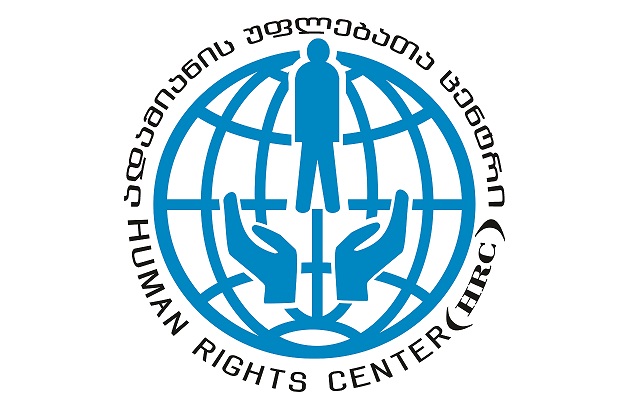On May 12, 2020, the Prime Minister of Georgia, Giorgi Gakharia, presented an anti-crisis plan in support of agriculture to reduce the negative consequences of the coronavirus pandemic.
According to the Prime Minister, the plan envisages an aid to farmers and includes both existing support programs and additional resources allocated by the State, the total cost of which is GEL 300 million.
The new State program called Providing Incentives to Agricultural Landowners envisages several clauses among which HRC monitors (after having studied the situation on the ground) identified the most problems with the clause concerning the aid to the small landowner farmers with a total budget of GEL 37 million.
Aid to small landowner farmers is the following:
-
Subsidizing agricultural goods and plowing services for registered landowners with land plots from 0.25 to 10 hectares.
-
The amount of the subsidy for 1 hectare of land is GEL 200. 200,000 farmers shall receive the benefits. The budget of the program is GEL 37 million.
-
Owners of agricultural land receive diesel fuel at a beneficial price.
Unfortunately, the anti-crisis plan of the Government applied to the agriculture failed to eliminate the existing problems and even up to the date the plan leaves behind the individuals and farmers involved in agricultural activities who particularly need the State support.
According to the plan, the farmers, who have registered land, will receive from the State a subsidy of GEL 200 per hectare (for example, medium and large farms with 10 hectares of land will receive GEL 2000), which means that the large and medium farmers will receive the aid in direct proportion to the size of the plots of land. In the meanwhile, the farmers, who have not registered land, shall receive the benefits if they manage to register their ownership on the land by the end of the year. This requirement in turn stands for the leverage over the achievement of the objectives provided for by the plan. In particular, the issues of eligibility for the state social allowances and the issues of accessibility to the services depend on the size of the property owned by an individual. Inter alias, the volume of land resources is one of the main identifiers for the eligibility criteria, and because of that reason the intensity of applications made in relation to the planned activities of the land reforms was always low at various times. The similar indicators we have in the reporting period. Moreover, the named phenomena is due to the fact that it is still unclear to the part of the population how the registration of land title will affect the eligibility criteria for the use of social allowances and for the use of some other services of one-time character.
According to the plan of the Government, the land owners have to apply for discount cards to receive diesel for agricultural activities and have to present ID cards when applying. In the case another person appears before the authorities, he/she shall hold a power of attorney of the landowner certified by a notary.
Such a prerequisite to obtain the discount card serves as an insurmountable barrier for landowners who live abroad for work, medical treatment or any other purposes. In order the persons to be able to receive the discount cards, it is necessary to make a power of attorney remotely through a notary, which is often practically impossible including because of the related financial costs; further, the discount card may be transferred to another person (for example, the card may be sold), which is an obstacle to achieving the goals of the program, because, in such a case, the social needs of specific individuals cannot be met.
Moreover, the significant problem is the technical issue related to the use of so called AgroCards.
From the statement of the Minister of Agriculture, Levan Davitashvili, we learn that all farmers, who own from 0.25 to 100 hectares of land, may buy diesel fuel necessary for agro technical needs at a price lower than the market price. According to the Minister, SOCAR Georgia Petroleum was selected as a supplier of cheap diesel within the program. The HRC monitors talked to peasants and farmers when visiting some of the villages within the ongoing project Human Rights Monitoring and Advocacy after the Pandemic supported by the Embassy of the Netherlands in Georgia. When listening to farmers, some of them noted that SOCAR gas stations are often located too far from their villages and the amount of fuel needed for moving to the gas stations makes unreasonable to encash the vouchers received under the subsidies.
Recommendations to the Government of Georgia:
-
When developing the draft documents for anti-crisis measures, the individual problems and needs of different groups should be taken into consideration to the most extent possible, further the most acceptable and simple procedures for taking the steps to implement the activities of social aid should be envisaged in the documents. The above requirements should be considered at all stages of planning / developing the activities in order to fully meet the objectives provided for in the anti-crisis plan.
-
The issues related to the eligibility for receiving the social allowances should also be taken into consideration as such issues stand for the reason many citizens refrain from the registration of their lands in ownership.
-
As a part of the anti-crisis plan, special social aid packages should be developed immediately including all the persons who would not be able to register land titles during the period.
Human Rights Center
News
December 13, 2023
Ethnic minorities outside the peace dialogue
November 6, 2023
‘Peace’ agenda of political parties
Popular
Articles
February 13, 2024




